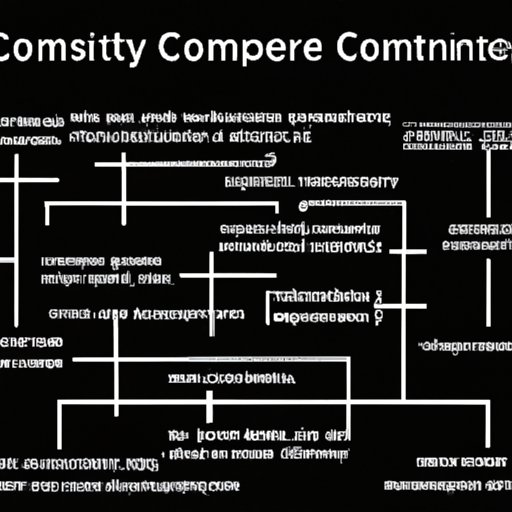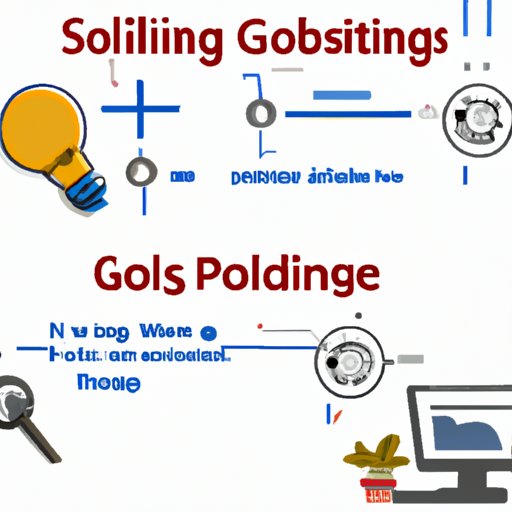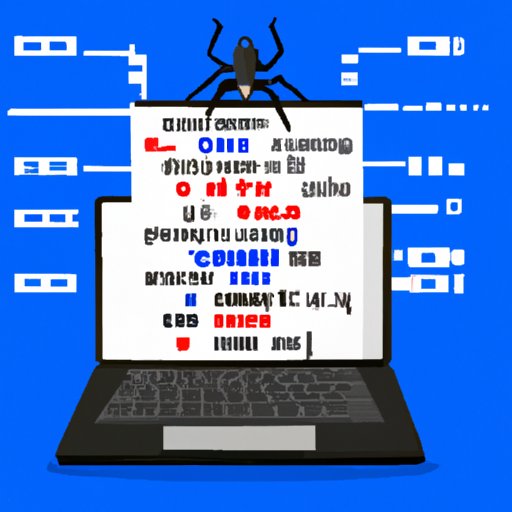Introduction
Computer science is an expansive field that involves understanding a variety of concepts and skills related to computers, software development, and technology. It includes both theoretical knowledge and practical skills, making it a challenging field for those who want to pursue it. In order to understand why computer science is so difficult, it is important to look at the different components of the discipline and the challenges that come with them.

Understanding the Complexity of Computer Science
Computer science draws from many other disciplines, including mathematics, physics, engineering, and psychology. Because of this, it requires an in-depth understanding of advanced math and logic. This includes topics such as algorithms, data structures, and discrete mathematics. Additionally, computer science requires an understanding of abstract concepts, such as computability and complexity theory. This makes it difficult for newcomers to the field to grasp the concepts quickly.
Troubleshooting and debugging are also essential skills for computer scientists. This involves finding and fixing errors in code, which can be a tedious and time-consuming process. It requires a deep understanding of the programming language being used and the system architecture, as well as the ability to think logically and pinpoint the source of the problem.
Keeping Up with Rapid Changes in Technology
The technology industry is constantly evolving, and computer scientists must be able to keep up with these changes. This means learning new programming languages, adapting to new platforms, and staying informed on the latest security practices. It is not enough to simply know one or two programming languages; computer scientists must be able to work with many different languages and adapt to new ones as they emerge.
Additionally, computer scientists must be able to work with different platforms, such as mobile devices, web browsers, and operating systems. This requires an understanding of how different technologies interact and how to optimize programs for different platforms.
Finally, computer scientists must always be aware of the latest security practices. This includes understanding common threats and implementing secure coding practices to protect data and user information. Additionally, computer scientists must stay up to date on best practices for security and privacy.
Mastering Different Programming Languages
Computer science involves working with many different programming languages, each with its own syntax, variables, and operators. This requires a deep understanding of the language and its features. Additionally, computer scientists must be familiar with libraries, APIs, and IDEs (integrated development environments) in order to write efficient code.
Object-oriented programming is another important concept in computer science. This involves understanding classes, objects, inheritance, and other concepts related to object-oriented programming. This can be difficult for beginners to understand, as it requires an understanding of abstract concepts.

Problem Solving and Debugging Skills
Computer scientists must have strong problem solving and debugging skills in order to identify and fix errors in code. This involves analyzing system requirements, identifying logical errors and bugs, and testing and refining programs. Additionally, computer scientists must be able to think critically and use their knowledge and experience to find solutions to complex problems.
Analyzing and Interpreting Data
Data analysis and interpretation are important skills for computer scientists. This involves understanding data structures, utilizing algorithms and statistical analysis, and recognizing patterns and correlations. Additionally, computer scientists must be able to visualize data in order to make sense of it and gain insights.
Developing Algorithms
Algorithm development is a key component of computer science. This involves applying mathematical and logical thinking to design algorithms that solve specific problems. Additionally, computer scientists must be able to write efficient code that is optimized for speed and memory.

Being Familiar with Cybersecurity Practices
Computer scientists must also be familiar with cybersecurity practices in order to protect data and user information. This includes understanding common threats, implementing secure coding practices, and adopting best practices for security and privacy. Additionally, computer scientists must be able to detect and respond to cyberattacks.
Conclusion
Computer science is a complex field that requires an understanding of advanced mathematics and logic, problem-solving skills, familiarity with programming languages, and mastery of cybersecurity practices. It is not an easy field to learn, but with dedication and hard work, anyone can become a successful computer scientist.
(Note: Is this article not meeting your expectations? Do you have knowledge or insights to share? Unlock new opportunities and expand your reach by joining our authors team. Click Registration to join us and share your expertise with our readers.)
